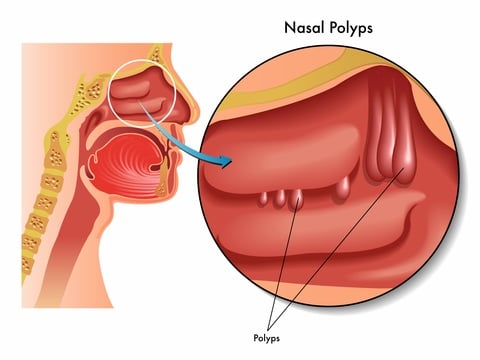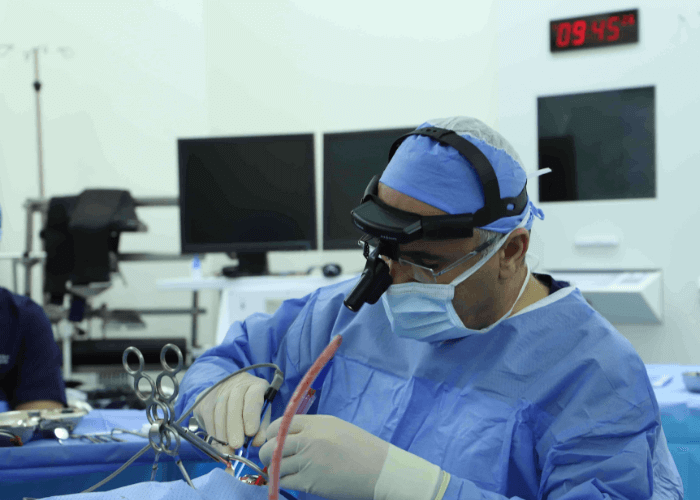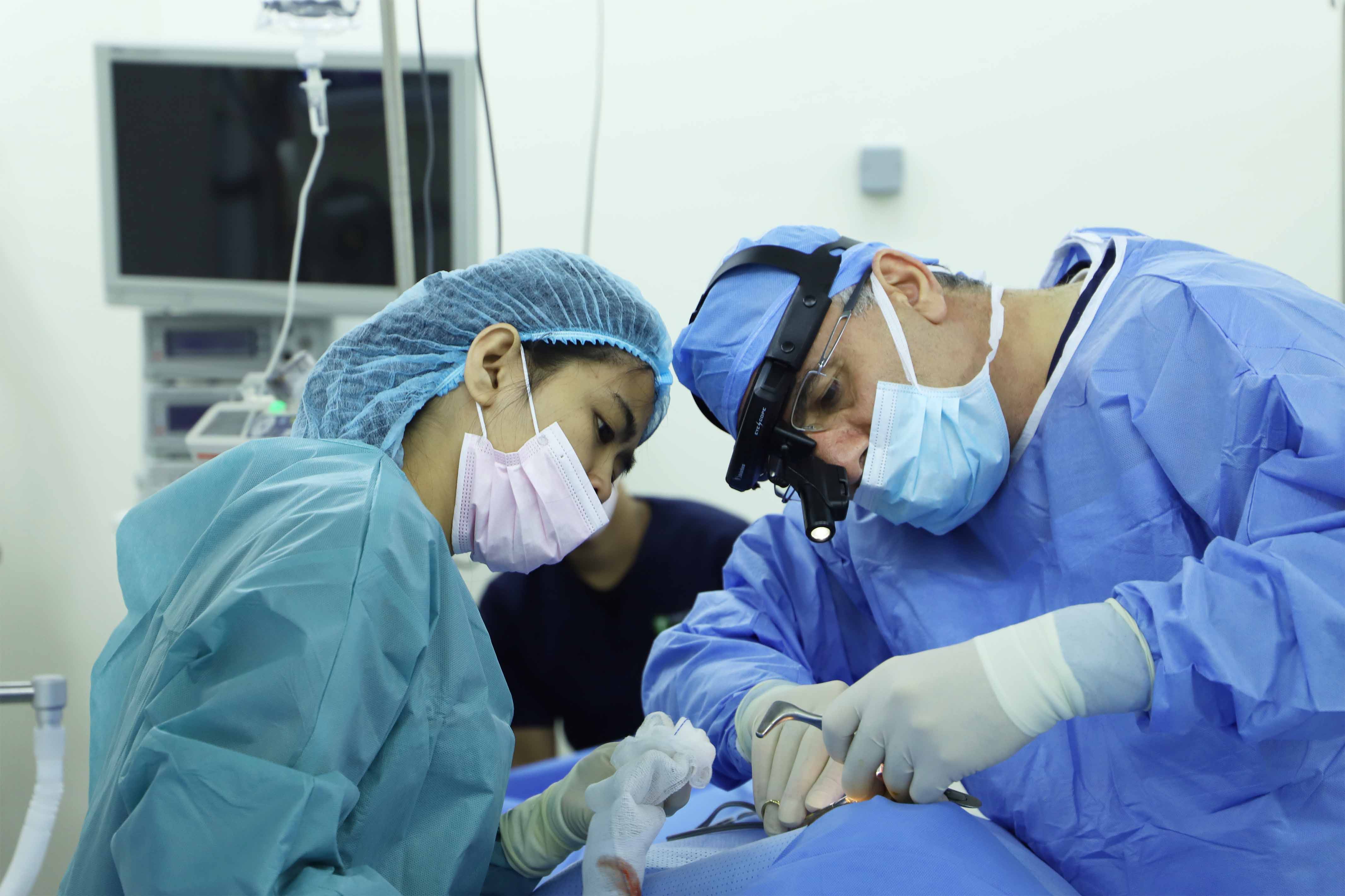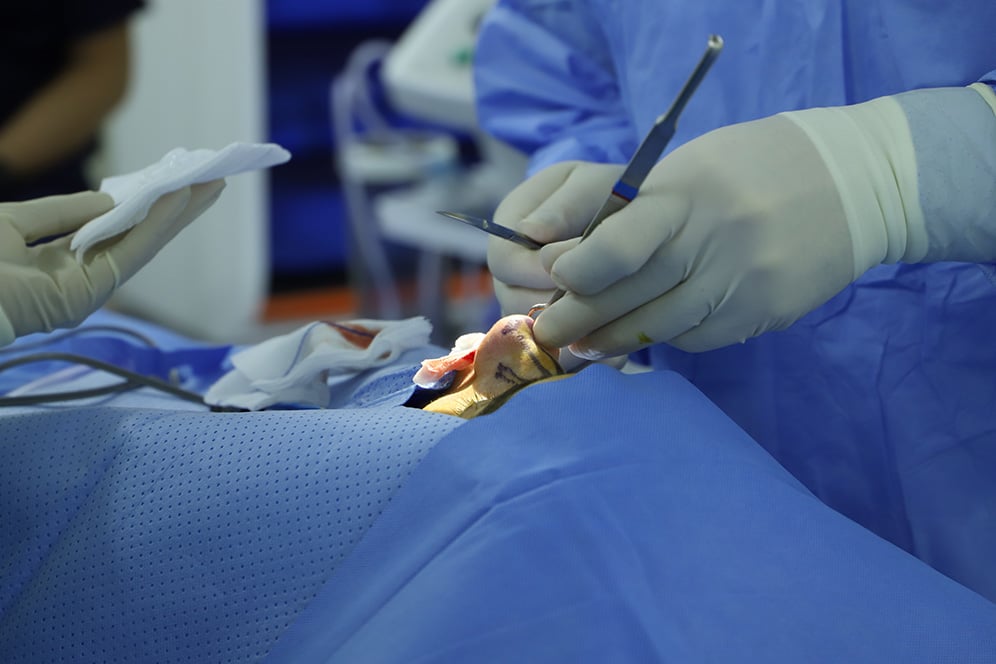Nasal Polyposis - DRHC Dubai ENT Clinic
Understanding their causes, symptoms, and treatment methods
Introduction
- Nasal polyps are non-cancerous growths that develop on the lining of the nasal passages and sinuses.
- These benign growths, which are generally shaped like teardrops, occur mostly in the area where the sinuses meet the nasal cavity.
- These polyps are not painful to touch, although they are commonly linked with allergies and asthma. The polyps have an uncertain etiology and often depict a tendency for recurrence.
Understanding the causes
- The actual causes of nasal polyps are still unknown, but they are generally known to develop amongst people suffering from long-term swelling and irritation within the nose, resulting from infections, allergies, and asthma.
- The long-term inflammation of the mucus membranes can lead to the build-up of fluid within them. This results in the formation of fluid-filled growths, which then gradually expand to become polyps.
- The mature polyps are known to have the appearance of peeled grapes. In addition, people with the following problems are likely to develop nasal polyps:
- Aspirin sensitivity
- Asthma
- Chronic sinus infections
- Cystic fibrosis
- Hay fever
Symptoms of Nasal Polyps
The most common symptoms among patients who might have developed nasal polyps are listed as follows:
- Stuffy or blocked nose
- Runny nose or postnasal drip
- Facial pain and sneezing
- Lost or weakened sense of smell and taste
- Sinus pressure
- Itching around the eyes
- Infections and headaches
- Snoring at night
Treatment of Nasal Polyps
- In most cases, the nasal polyps represent a challenging diagnosis for the doctors to treat. The small polyps often do not cause any symptoms or problems and hence can be left as such.
- However, if the growths become too large, they might block the nasal passageways and the sinus and leading to infection and breathing problems.
- Hence, their timely treatment becomes vital to avoid any further health complications. The primary treatment for the growths involves the use of a nasal corticosteroid spray, which generally causes the polyps to shrink or even eliminates them.
- In more severe cases, the patients might need to consume the corticosteroids orally for about a week.
Surgical Treatment
- In case the nasal polyps are too large for the corticosteroid sprays to prove ineffective, then the patients might be required to undergo surgery to get them removed.
- The surgery will generally be performed using a nasal telescope, and the patients are most likely to be discharged on the same day of the surgery itself.
- However, they need to follow the post-operational precautions and instructions for a speedy and proper recovery.
Click here for ENT surgical packages
.png?width=281&height=59&name=bookanappointment%20(1).png)
Dubai ENT clinic - If you are in search of an ENT specialist in Dubai, then DRHC provides experienced and leading ENT doctors in Dubai for healthy treatment. To book your appointment, please call +97142798200 today!




.png?width=281&height=59&name=bookanappointment%20(1).png)
.jpg?width=1080&height=1080&name=DR%20HATEM%20(1).jpg)



